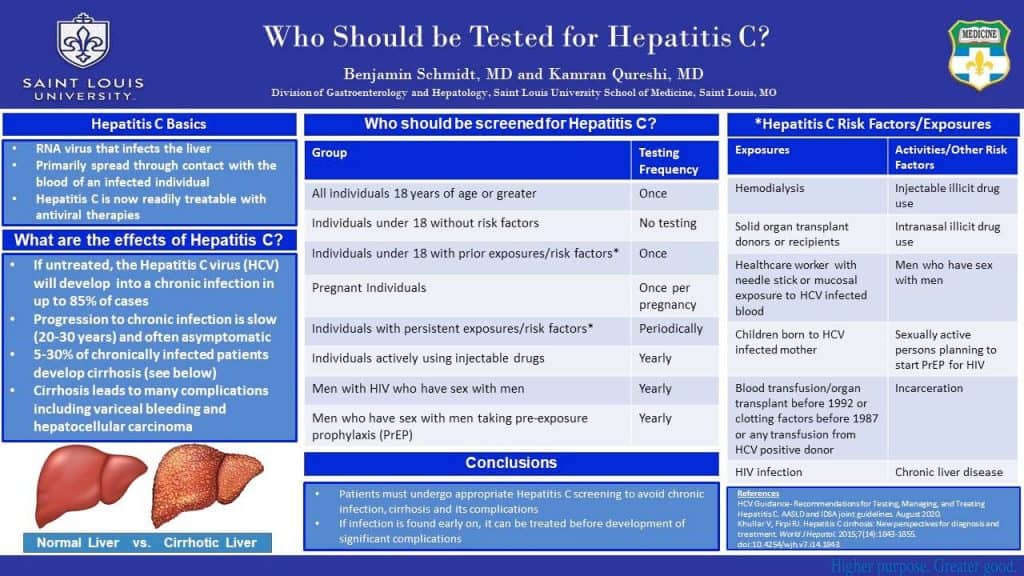Who Should Be Tested for Hepatitis C?
Benjamin Schmidt MD and Kamran Qureshi MD
Saint Louis University Hospital
This presentation is an excerpt from the ALF 2021 Poster Competition. This competition showcases posters and a brief video created by early career investigators from across the country on six areas of educational focus: fatty liver disease, liver cancer, liver transplantation, pediatric liver disease, rare liver disease and viral hepatitis. Participants are tasked with translating complicated medical information into a poster which can be easily understood by patients or the public. Posters are reviewed by a formal panel of judges comprised of Medical Advisory Council members, Board Members and friends of ALF to select a winner in each category.

The Hepatitis C virus (HCV) is a virus that infects your liver and over time can lead to serious complications including liver cirrhosis and liver cancer. When you are first infected with the virus you often have no symptoms. It is very important for patients to get screened for the virus when recommended because it can now be effectively treated before complications develop. All individuals 18 years of age or older should be screened once for Hepatitis C. Those individuals with high risk exposures or activities that put them at increased risk for contracting Hepatitis C should be tested more frequently, with the specific frequency depending on the specific exposure and whether the exposure is persistent in the patient’s life. These risk factors include patients on hemodialysis, solid organ transplant recipients or donors, healthcare workers with needle sticks or mucosal exposure to HCV infected blood, children born to HCV infected mothers, patients who received a blood transfusion before 1992 or clotting factors before 1987 or anyone who received blood from someone with HCV, people with any type of prior incarceration, people with HIV, men who have sex with men, those with chronic liver disease and those with intranasal or intravenous illicit drug use. In addition, pregnant patients should be screened for Hepatitis C once per pregnancy. By identifying Hepatitis C infections before they become symptomatic, in many cases patients can be successfully treated before their infection leads to significant complications.
Last updated on December 1st, 2022 at 01:58 pm